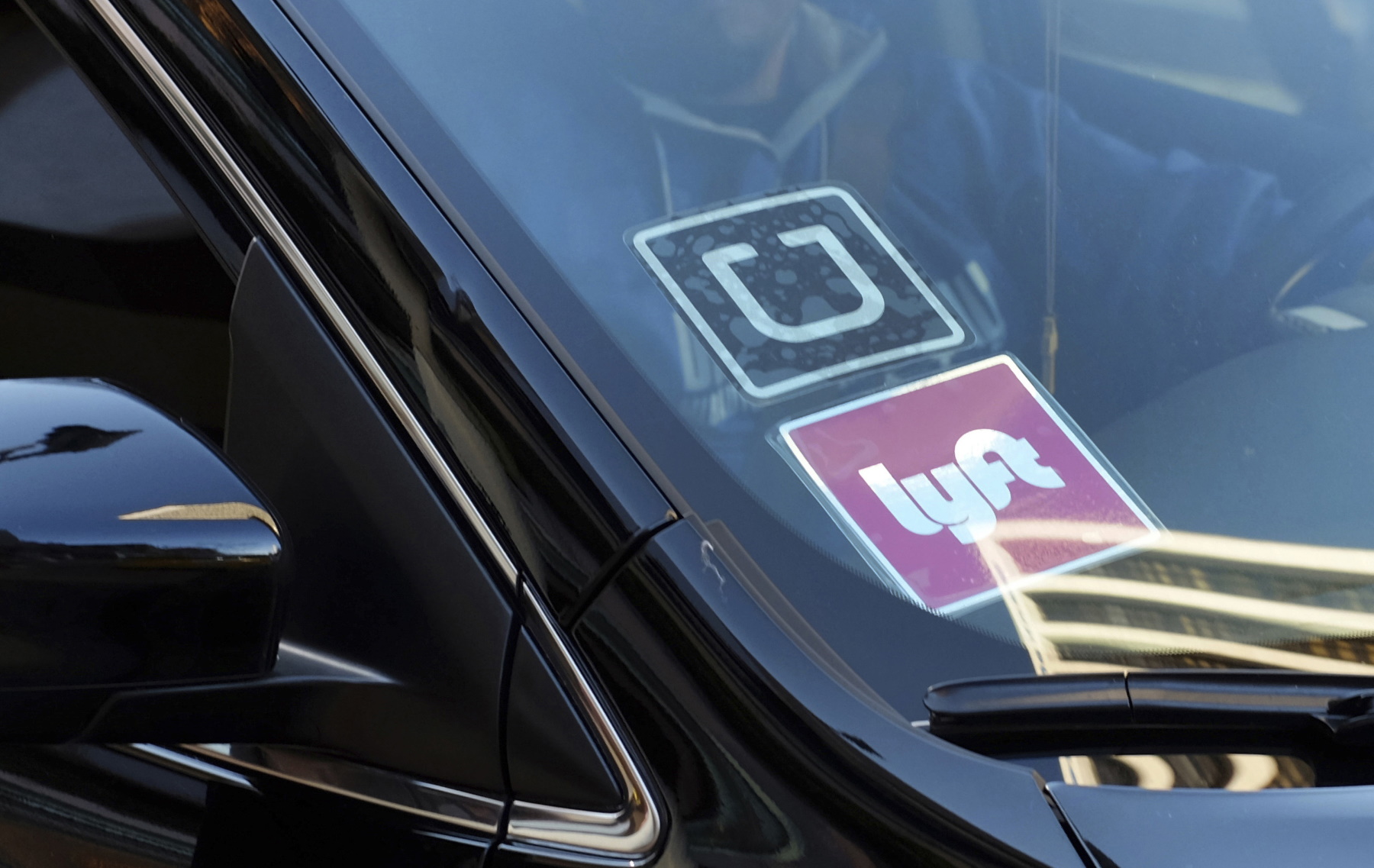Uber, Lyft In Georgia To Begin Collecting ‘One Of The Highest Taxes In The Country’ Wednesday

This 2016 photo shows Lyft and Uber stickers on a front windshield. The ride-hailing companies made attempts to avoid collecting the Georgia sales tax.
Richard Vogel / Associated Press file
Despite continued attempts to avoid it, as it stands, ride-hailing companies like Uber and Lyft will be forced to collect the Georgia sales tax starting Wednesday, April 1.
Uber spokeswoman Evangeline George said this will be “one of the highest taxes in the country on ride-sharing.”
It’s a result of the “marketplace facilitator” law, which passed in January and compels all online businesses and platforms to collect the sales tax beginning April 1.
Including state, county and city taxes, the rate in Georgia varies but rises to nearly 9% in Atlanta.
Ride-hailing companies had lobbied the state Legislature to pass a compromise: a 50-cent flat fee on most ride-shares and taxi rides instead of the full sales tax rate. It fell one step short of final approval in the late hours of the legislative session before the General Assembly was suspended indefinitely.
“It was a bipartisan effort to correct a situation that was basically an unintended consequence of the marketplace facilitator bill,” said state Sen. Steve Gooch, who helped shepherd the compromise bill.
He said he has asked the governor to consider temporarily suspending the collection of the rides’ sales taxes by executive order in the meantime.
A spokesman in the governor’s office declined to comment on whether that would be a viable option on Monday.
Gooch was among the senators who added the compromise fee into an existing bill, HB 105, which would grant Georgia farmers a state income tax exemption on any disaster relief funding received in the wake of Hurricane Michael, so now both components are in limbo.
“It’s a very important piece of legislation that unfortunately just got caught up with the pandemic,” Gooch said. “If we’d have had one more day, we could have had it adopted and sent it to the governor for signature, but nobody knew what was coming.”
Lyft spokeswoman Campbell Matthews said the company “is committed to providing affordable rides in Georgia.”
“We are eager to work with lawmakers to pass a better solution for riders and drivers when the Legislature resumes.”
“Now we’re sort of in limbo,” Gooch said. “Until we get back into session, we can’t make it right.”
Should the bill ultimately pass as written, there’s a chance riders could receive refunds for the sales tax retroactively, as the start date as written is also April 1.
“While sales tax will begin applying to rides on April 1, we are advocating for a resolution when the Legislature returns with the passage and signing of HB 105,” George said of the compromise bill. “The safety and well-being of Georgians is rightfully the top priority for the state right now.”








